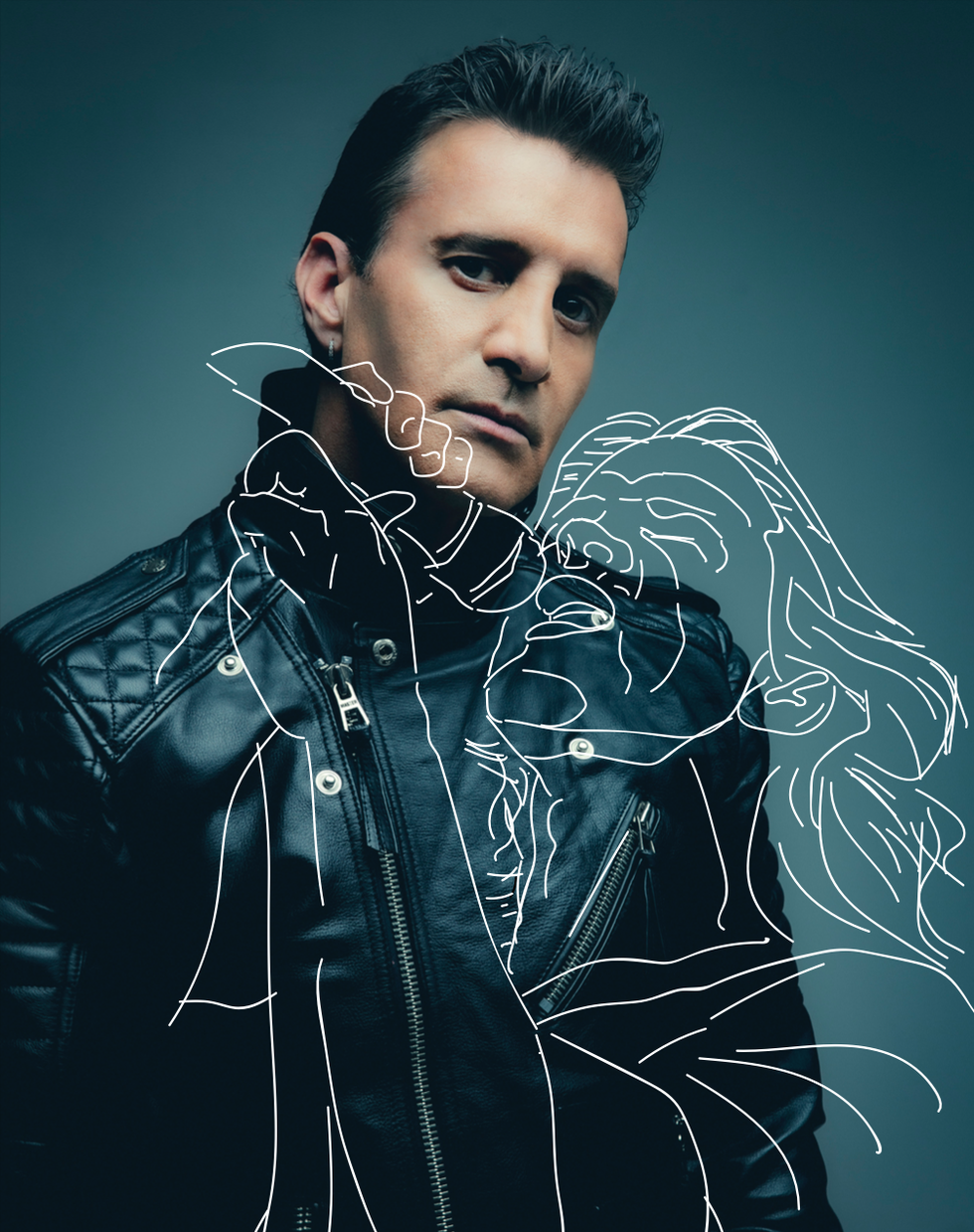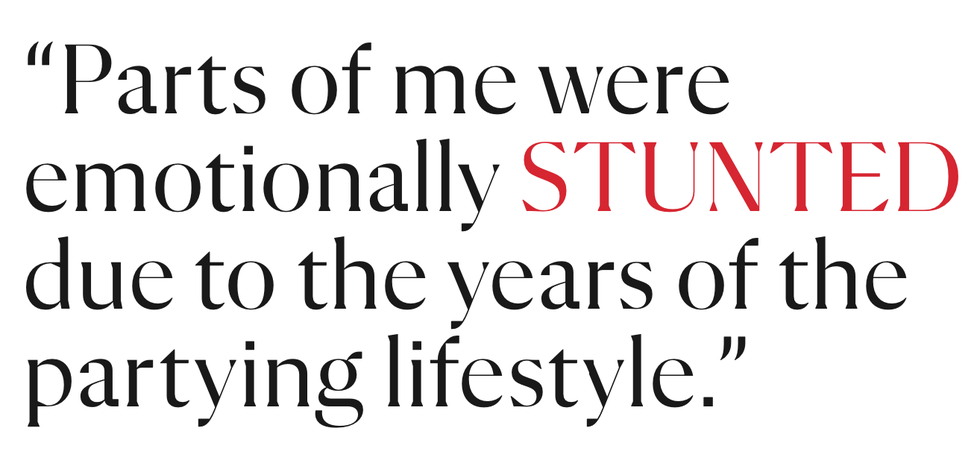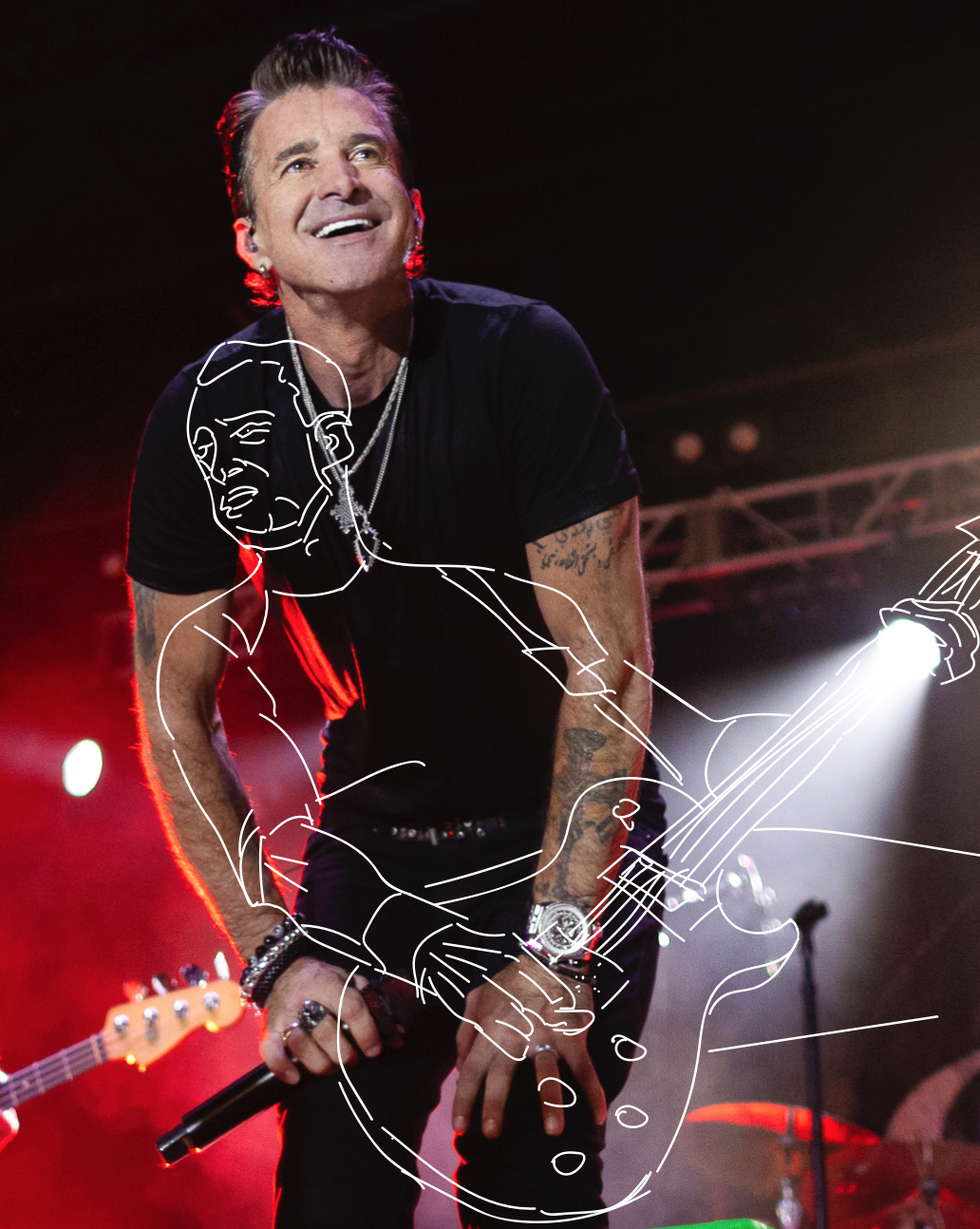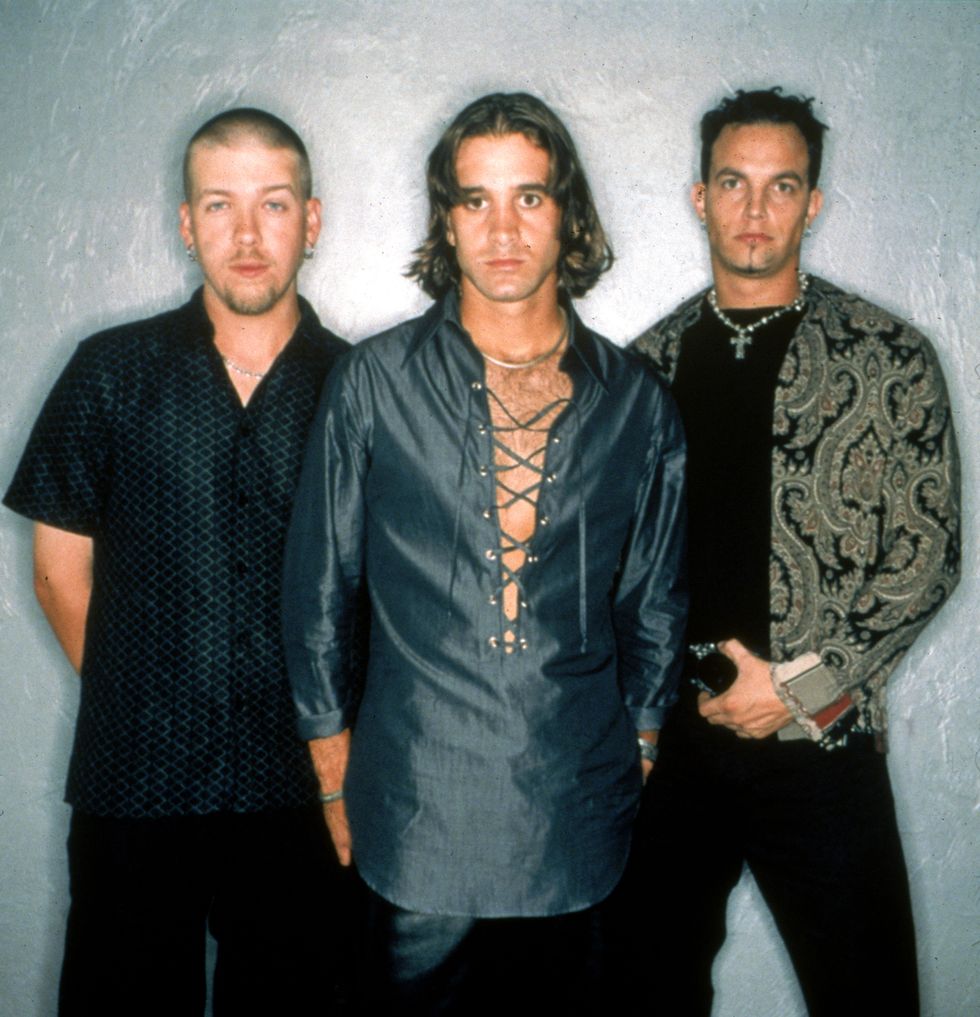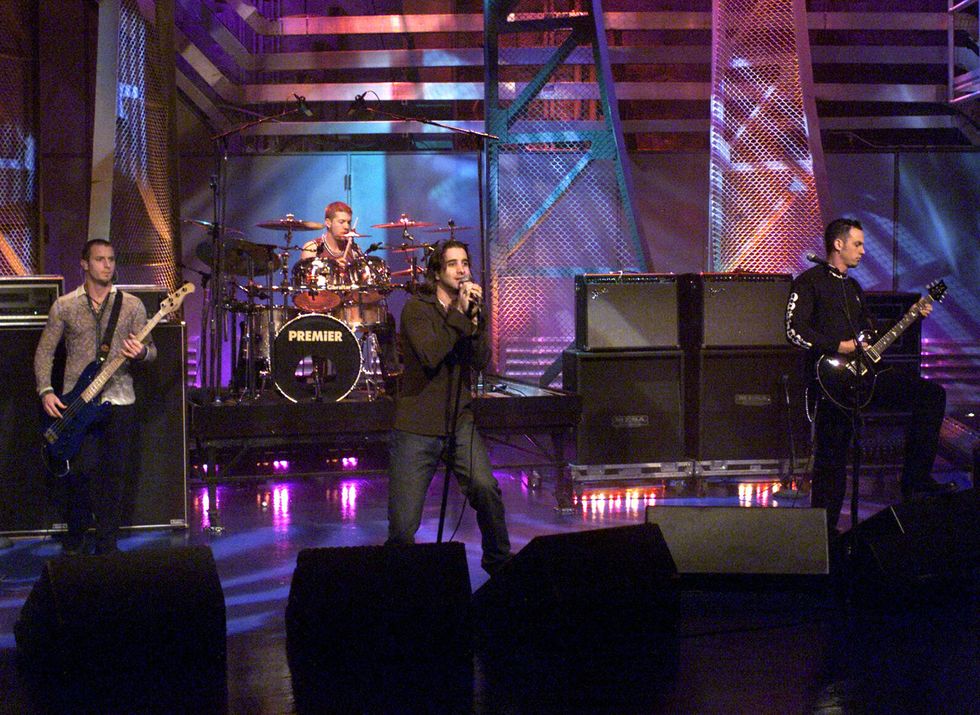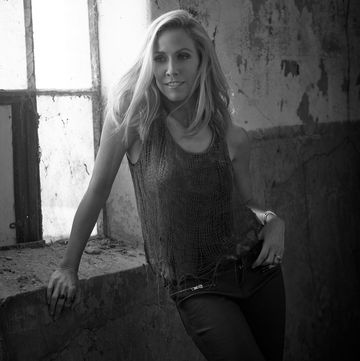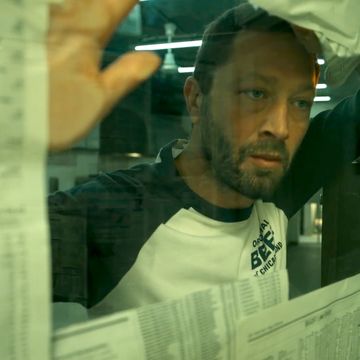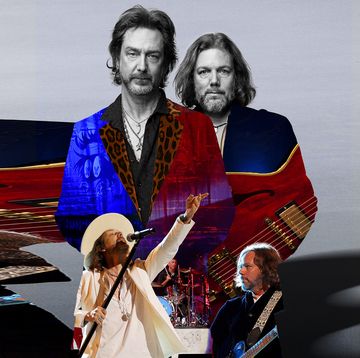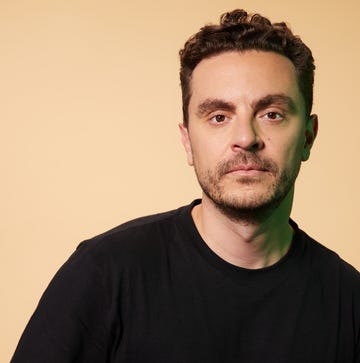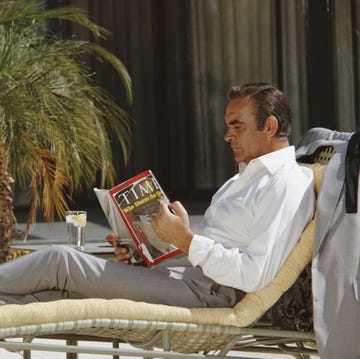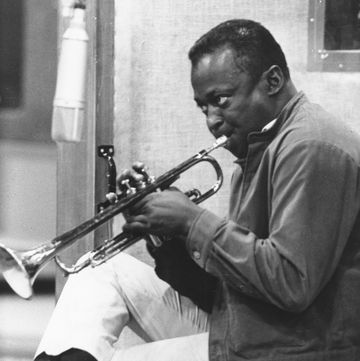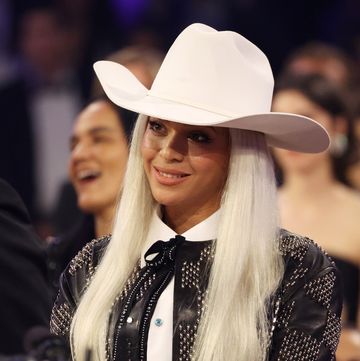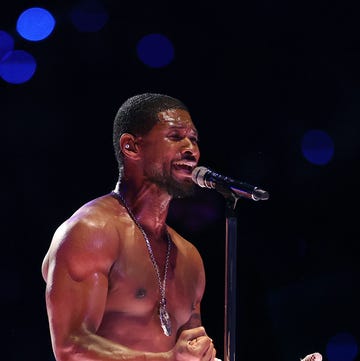There are certain people who will declare that a particular experience “opened up a Pandora’s box,” then pause thoughtfully and add “if you will.” If you know Scott Stapp’s work, you know Scott Stapp is one of these people. He is, as he has forever been, serious and sincere to the absolute max, in a way that makes you wonder why sincerious isn’t a word. Just as he was at the Y2K peak of his once-and-sort-of-future band Creed, Stapp in 2024 is both grandiose and grateful, with an evolved rock star’s proprietary mixture of humility and hubris. “By no means does rock ’n’ roll need a savior,” he says, in response to my not having asked him whether rock ’n’ roll needed a savior, “but with this record, I’m just looking for my place.”
The record in question is his fourth solo album, the sinceriously titled Higher Power. With ten huge, earnest, soaring, anthemic tracks, Higher Power is everything you love about Scott Stapp, and, out now, it arrives just in time for you to stop pretending you don’t love Scott Stapp. The album’s release and tour prep are happening amid what can only be called a Creedsurgence: The band’s music is suddenly popping on social media and streaming, something Stapp first noticed during the pandemic. “A younger generation started making videos, and it’s been this build since then,” he says. The night before he and I spoke, the band and its song “Higher” earned the last remaining piece of monocultural currency: a feature on a Super Bowl commercial. “And so it’s the alpha and omega of the story.”
Creed’s first three albums—My Own Prison, Human Clay,and Weathered—are among the biggest-selling rock records of the record industry’s biggest-selling years. By 2000, the band was on the cover of Spin, Stapp front and center, shirtless and in a truly unprecedented state of oiled-the-fuck-upness. At the turn of the millennium, they were all over MTV and VH1 and mainstream rock radio. The video for “With Arms Wide Open” featured Stapp, with jacket wide open, striking a messianic pose on the top of a mountain. Their Dallas Cowboys Thanksgiving Day game halftime show from 2001—all fist pumps and benevolent-rock-god poses from Stapp, surrounded by some kind of Up With People situation—belongs in the Louvre.
The national appetite for sinceriousness diminished greatly in the early aughts, as the Strokes and Interpol and Meet Me in the Bathroom crowd got all the attention. At the same time, the intra-Creed dynamics turned toxic and the substances took over. It got ugly, in ways we don’t need to dwell on.
But now it’s 2024. In addition to Higher Power, Stapp and the original lineup of Creed have a reunion tour ahead of them. There are no plans for new Creed music at this time, but this April there will be a Creed Cruise—two of them, actually, both sold out—so it seems that anything is possible. Things feel different now. When I found out I’d be speaking with Scott Stapp, I told approximately everyone I’d ever met, and roughly half of them said something along the lines of “I’ve actually been listening to a lot of Creed lately.” Excited about him always. But also, always with the actually.
So let’s go there. I spoke with Scott Stapp over Zoom as he prepared to take a long walk in a park near his Nashville home. He was in his car, in a parking spot, his youngest child’s Spider-Man car seat visible over his right shoulder. This conversation has been edited for length and clarity.
SCOTT STAPP: Dave, you like the Spider-Man car seat in the back?
ESQUIRE: I do love that you have Spider-Man in the car with you. That must make you feel very secure.
SS: Spider-Man travels with me everywhere I go.
ESQ: Higher Power comes out March 15. You’re in the time after it’s out of your hands but before it’s in the world. How does that feel for you?
SS: It’s a different experience this time, in that by the time the album comes out, five songs off the record will already be out to the public. It’s not a big surprise, as it was back in the day, where fans had only heard one or two songs by the time the record came out. There are songs that I’m excited for fans to hear so they can put the pieces of the puzzle together. This album is a narrative to be listened to from beginning to end.
ESQ: What’s the narrative of this one?
SS: Well, I’ll tell you, it starts with a journey of trying to reconnect to my higher power, whom I call God. Navigating this new way of life in sobriety and realizing that everything in my life stays together, contingent upon the shape of my spiritual condition. I was going through a lot in my life during the making of this record, and I’m gonna leave that up for interpretation. It’s still being played out. I’m still living it, and I haven’t reached the last two songs yet. A lot of times on these records, I’ll take the snapshots of where I’m at as I’m going through this process, and then I’ll write about where I want to end up, not where I’m at.
ESQ: Do you feel like your albums are understood the way that you intend?
SS: I know there is a core group of die-hard fans who know what I do and how I do it. They’ve caught on. But as a whole, especially in today’s music climate, people cherry-pick songs that they connect with, whether it just be a fun song or they’re going through a struggle in their life and the song encourages them. That’s the power and the beauty of music. The collective consciousness of the human experience is what I hope to encapsulate on every record.
ESQ: The theme of recovery runs through Higher Power. Does being so publicly sober add a layer of difficulty to sobriety itself?
SS: I think it’s good to share the journey that I’m trying to live. I’m not perfect on that journey. I take it one day at a time, and I’ll take ten steps forward and then one step back, and then I’ll take another ten steps forward. But having the sobriety that I’ve had during that last ten years has radically changed my life. It’s continuing to help me reconnect with parts of me that I’ve been disconnected from since I was a child. It’s also kind of opened up a Pandora’s box, if you will.
Parts of me were emotionally stunted due to the years of the partying lifestyle. Getting sober is just the tip of the iceberg. Catching up on all the years you lost is the real journey.
ESQ: Is it true that Eric Clapton and Steven Tyler were sort of your recovery sherpas?
SS: Yeah. Steven Tyler in 2010, when I started this journey—and again, like I told you, I’ve had many, many slips since—he called me nearly every day for about a month when I was in treatment at Betty Ford. And then Eric Clapton was gracious enough to allow me to stay at one of his facilities in Florida during another stage in the recovery process. I never spoke with him personally, but he made sure that I had the extra care and attention that I needed.
ESQ: Getting back to Higher Power, the music industry is very different from what it was during those first three Creed albums, when albums were like blockbuster films. What does success look like to you now?
SS: I’ve already succeeded in one regard: completing this record and getting it out to the world. So on one level, I feel complete. What happens after that, I can’t control. But after it’s out, if songs on that record are connecting with people in a substantial way? That’s what I do this for.
At some point, there is a part of you that wants the powers that be to finally get you. If that never happens, it never happens. But if that did happen on this record, that would be a third layer of success. I only experienced that kind of success early in my career, on My Own Prison and the first half of the Human Clay record.
ESQ: And then what happened?
SS: Well, the narrative shifted. The whole trying to pigeonhole us as Christian rock changed the narrative of the band. We went from being on the covers of magazines, being deemed the saviors of rock ’n’ roll, and then the next thing you know, the media had declared us the enemy of the state.
My first solo record went platinum, and it did get a lot of attention, but since then, my records have not gotten the exposure that I had hoped they would get. So I’m hoping that this record gets the exposure that I feel at this point, thirty years in, that I can humbly say that I think I’ve earned.
ESQ: Why do you think you guys specifically were so pigeonholed? You weren’t the only band that was wrestling with spiritual themes in its lyrics.
SS: I was pretty straightforward in my lyrics, in terms of what I believed in. And at the time, that wasn’t considered cool in the rock ’n’ roll community and on secular rock radio. Everything’s changed since then. There are many bands of faith that have tremendous success at mainstream rock formats. People are not defining and pigeonholing and putting music in niches just because of the writer’s personal beliefs. They’re just letting the music be music. And if it’s rock, they’re putting it out as rock. Skillet is a good example of that. P.O.D. has been a good example of that. Even Nicki Minaj has been straightforward and loud about her faith.
ESQ: But even at the time, P.O.D. didn’t get dinged for it. Jars of Clay didn’t. It seems like you in particular got a lot of flak.
SS: You know, it is what it is. But it seems that we’ve outlasted that. Creed’s music is having this resurgence on a global level, so I’m grateful and thankful for that. It’s all water under the bridge, and here we are today talking about Higher Power and what’s on this record.
ESQ: When did you notice Creed’s music coming back into the zeitgeist?
SS: It probably started during Covid, but I was more tuned in to my kids than paying attention to what was going on in the world. But in early 2021, it just started happening. And thank goodness that we’re not somewhere over the rainbow, that we’re here today and I’m talking to you and I’ve got a new album called Higher Power and I’m getting ready to go on tour and go on a Creed tour. I’m just grateful.
ESQ: What do your kids listen to?
SS: Oh man, my daughter’s into everything. Right now she’s a musician. She plays piano, guitar, drums, and she records. She’s recently gone through her Metallica phase, where she’s learned all the Metallica riffs, and then she’s playing scales, then she went on to Nirvana. She’s already learned the Creed songs, or a bunch of them. And then she’s also into a lot of the pop artists. Not only does she like rock and metal, she likes what any seventeen-year-old girl would like, from Taylor Swift to, what’s her name, Sia?
ESQ: SZA.
SS: SZA. From SZA to Taylor Swift and everything in between. And the same with my son. Last night, my son, I guess, stumbled across, or maybe I stumbled across on my phone, an article on SZA and me. And I said, “Son, do you know who this is?” And he goes, “Yeah, I do. I listen to her.” I was like, “Oh, I guess she’s talking about your dad.” He was like, “Really?” It was a cool moment where I got to experience that with my son. Now my little Anthony, he loves his daddy’s music. He wants to get in the car when he’s with me and he wants to hear all the heaviest songs.
ESQ: What was the first music that you listened to that made you want to perform?
SS: I always have to give credit to Def Leppard for the moment that I said, “That’s exactly what I wanna do.” When I saw “Photograph” come on MTV, and saw the video and heard the sound, and I was like, “I wanna be in a rock band, and I wanna have that guy’s life.” But what really had an impact on me prior to that was Neil Diamond. “America” was the song that we would listen to at my buddy’s house over and over again.
ESQ: Creed’s moment in the late nineties and early aughts was right at the time when everything was supposed to be a little bit ironic. I think how a person feels about you and your voice reflects how they feel about sincerity. When I told people I was interviewing you, a lot of them said, “I have been listening to him a lot lately,” which you know is true. And one of those people said, “He’s like the Ted Lasso of rock.” There is something that is sincere and hopeful and honest and unironic that the world kind of needs right now. There’s not really a question there. I’m just wondering if that resonates.
SS: When I create, I’m not trying to be anything other than who I am and express honestly what’s going on inside of me at that time. So it feels good to hear you say that, because that’s at the core of who I am as an artist.
ESQ: You’re touring behind Higher Power, and then there are two Creed Cruises. What’s new about your tour routine now that you’re fifty?
SS: I rest a lot more. I give my body its downtime in order for it to have what it needs to deliver what I deliver onstage.
ESQ: What’s a pleasant surprise about being fifty?
SS: Aside from the occasional aches and pains, I still feel like I’m thirty-five. It’s not what I thought fifty was. Even though I have a five-month-old grandson, fifty doesn’t look like I thought fifty was going to look at all. I realize there’s so much more life ahead of me. You know, just like I say on [Creed’s 1999 song] “Are You Ready?”—“your life has just begun.”
ESQ: What would you tell the younger version of yourself?
SS: Life’s not a party. You know? When you’re doing a show, the people that are there to watch you are coming to have a good time and party. But that’s your job. You need to limit your good times and your blowing off steam and your unwinding to times when you’re not working. There would be a lot of things I would tell young Scott. Have thicker skin; don’t take things so personally. Understand the tongue-in-cheek. And, you know, react and live outside of your emotions. It’s a good place to be when you’re creating, so use it there. But in terms of interpersonal relationships or in terms of just our conversation today, no matter what you ask me, don’t ever respond or react out of emotion. Respond with reason and logic. And I think that promotes longevity in so many areas of your life.
ESQ: Would he have listened?
SS: Man, if Bono told me—you know what I mean? If someone that I had put on such a huge pedestal and had such a dynamic impact on my life had sat me down and given me the dad talk and maybe even had to follow up a few times, possibly. I don’t know, but possibly.
